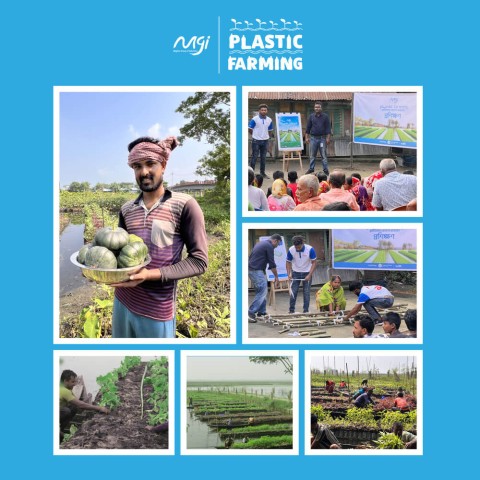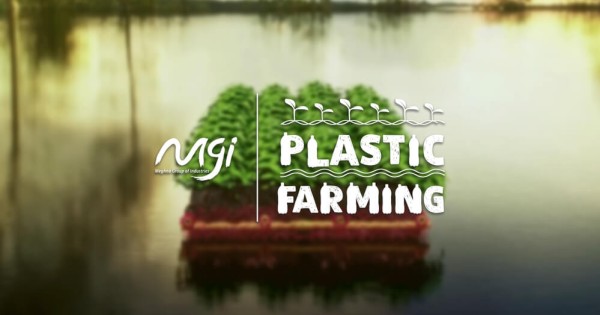
Bangladesh faces multiple challenges due to climate change and environmental degradation. One of the most pressing issues is the loss of agricultural land due to rising water levels and floods. According to the Dhaka Tribune, there are over 4 million landless farmers in the country, who struggle to find livelihoods and food security. Moreover, the rivers of Bangladesh are heavily polluted with plastic waste, which carries 73,000 tons of plastic waste every day, as reported by The Daily Star. This not only harms aquatic life, but also contributes to global warming.
MGI, a conglomerate that has products that contribute to plastic pollution, felt it was their responsibility to help change this situation. After two years of research, they invented a new farming process that uses plastic waste as a resource. They created Plastic Farming, an initiative to turn plastic waste into floating farms.
To spread the project, they partnered up with Bidyanondo, a voluntary organization that brought the landless farmers together, and the local government’s agriculture officers who taught them the process of Plastic Farming. Together, they taught farmers how to collect plastic from water bodies and use simple bamboo frames, the collected bottles, water hyacinth, and crop seeds to begin Plastic Farming.

Initially over 500 farmers around Pirojpur and Gopalganj were taught about Plastic Farming. Then nationwide activations, a free website, video tutorials and manuals attached to MGI products were released to help other farmers. To take care of any potential microplastic, the farmers were shown how to release fungi around the sites.
The project had a positive impact on the lives of the farmers and the environment. It created 247,1054 acres of potential farmland, provided land to X landless farmers, formed the habit of collecting plastic among the farmers, collected X tons of plastic from the rivers, and reverted X climate refugees to farmers. The project also increased the nation’s productivity, strengthened food security and changed agricultural norms.
MGI’s Plastic Farming is an example of how a brand can take responsibility for its environmental impact and create a solution that benefits both the people and the planet. It is a testament to the power of innovation and collaboration to tackle the challenges of the 21st century.
To learn more about the project, visit the below links:
https://www.plasticfarming.com/
MGI Plastic Farming (youtube.com)
Media Contact
Company Name: MGI Plastic Farming
Contact Person: Sumsuddin Mahmud
Email: Send Email
Country: Bangladesh
Website: https://www.mgi.org/
